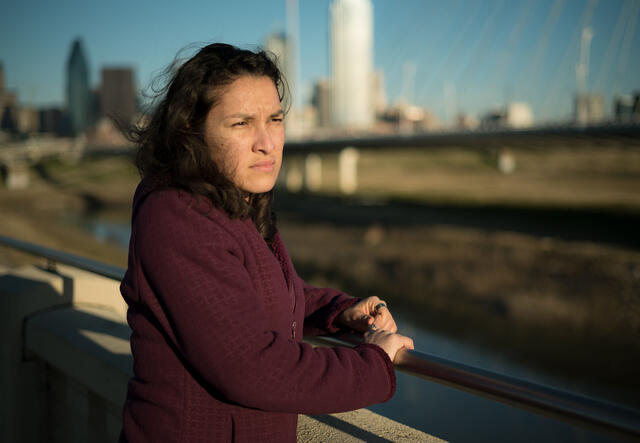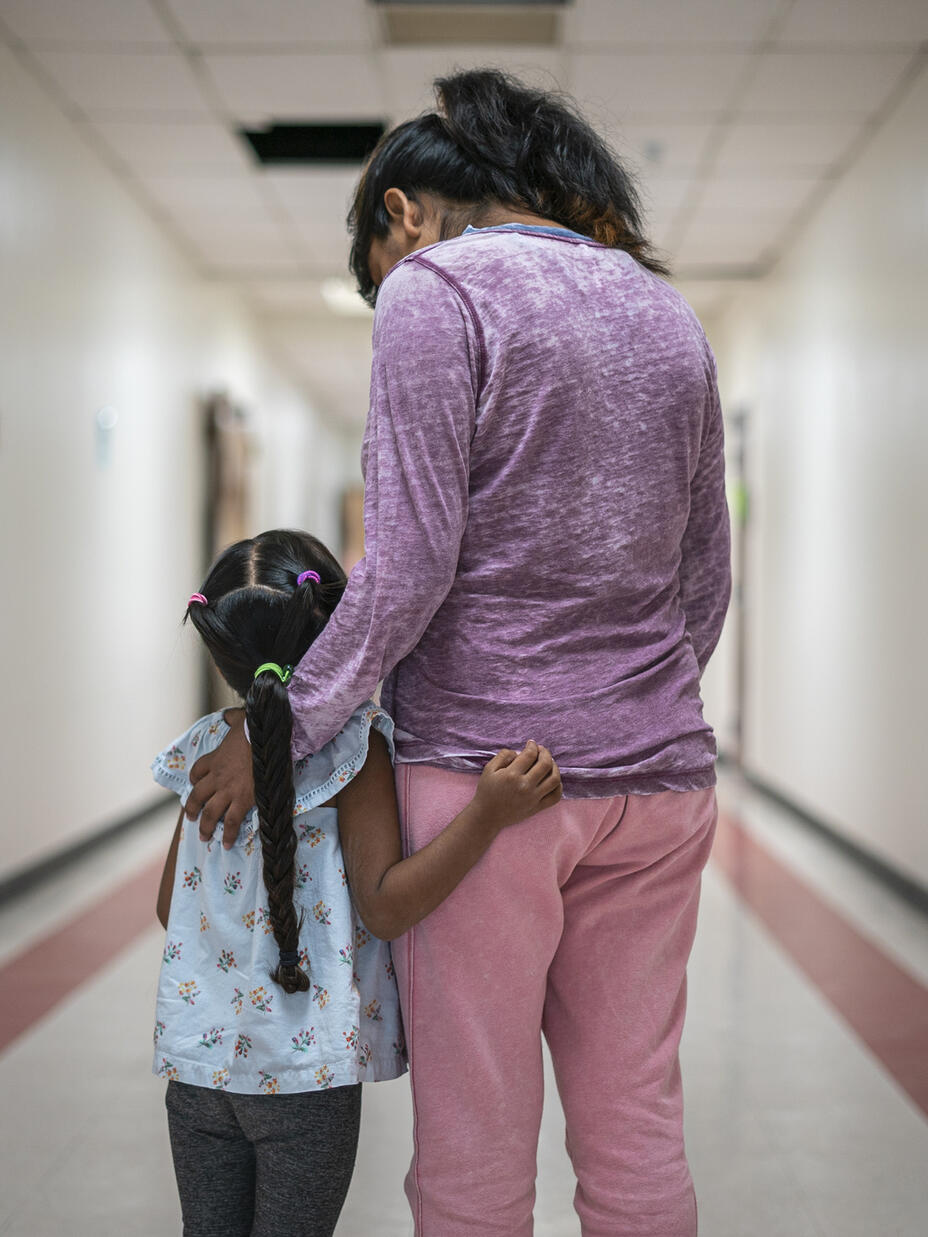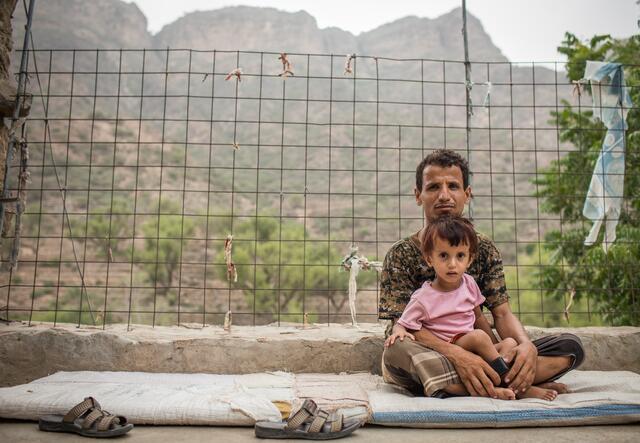
The first 100 days: How President Biden can support refugees and asylum seekers
Find out what the Biden Administration has accomplished so far and explore what needs to happen next.

Find out what the Biden Administration has accomplished so far and explore what needs to happen next.
Any president assuming office in the midst of a global pandemic would be facing a staggering challenge.

President Joe Biden is also beginning his term after four years of an administration that wreaked havoc on the lives of refugees, asylum seekers and other marginalized communities, as well as failed to lead on global crises ranging from COVID-19 to protracted conflicts to climate change.
The Biden Administration has the ability to turn all of this around. Here are seven executive orders and other concrete actions the new administration can take—and, in some cases, has already committed to—within its first 100 days.
Editor’s note: In his first 100 days, President Biden made strides toward rebuilding America’s legacy of welcome—but there is still much work to be done. Explore below to see what his administration has accomplished so far and find out what needs to happen next to make a difference in the lives of refugees, asylum seekers and people facing crises.
All around the world, people are fleeing war and persecution at record levels. Some 26 million of these individuals are refugees, meaning they have had to cross an international border in their quest for safety. Only those refugees most at risk—just one percent of the total—have a chance to resettle in the U.S. or another welcoming country.
Each year, the president of the United States sets the annual refugee admissions goal through a process called the presidential determination, or PD. The refugee resettlement program has historically had bipartisan support, with an average PD of 95,000 until 2017. The program was decimated under the Trump Administration, which set a record low PD nearly every year. Refugee arrivals declined by over 85%.
As a candidate, President Biden committed to admitting 125,000 refugees in his first year in office. He’s begun the process by raising the Trump Administration’s record-low Fiscal Year 2021 admissions goal of 15,000 to 62,500.
The president’s decision comes after he removed discriminatory admissions categories set by the previous administration that targeted people from Africa and the Middle East. It also comes after Americans across the country called on President Biden to restore America’s legacy of welcome. While the Trump Administration’s record-low admissions goal remained in place, families were separated and thousands were left waiting in limbo.
“President Biden’s decision is good for America and good for refugees,” said IRC president and CEO David Miliband.
Seeking asylum is legal—even during a pandemic.
Asylum seekers cross the U.S. border because they are fleeing violence and persecution. The Trump Administration’s inhumane policies have left behind a broken asylum system: Americans were horrified to see thousands of children separated from their parents. People seeking safety have been turned back to dangerous conditions. And, most recently, the administration used COVID-19 as an excuse to close the border altogether—without giving asylum seekers the chance to request sanctuary.

Through bold action in his first 100 days, President Biden can end the current crisis at the border and build a safe, orderly and fair process for asylum seekers.
One priority is issuing an Executive Order to reverse a policy called the Migrant Protection Protocols (MPP) or “Remain in Mexico.” Under MPP, asylum seekers make their claim in front of a U.S. border official, then are sent right back to Mexico to wait for their case to be heard by an immigration judge in the U.S. Though local communities have made valiant efforts to welcome turned-away asylum seekers, resources are stretched thin and already-vulnerable families are finding themselves in danger of kidnapping and assault. On February 12, the Biden Administration announced plans to begin to provide a safe and credible pathway for 25,000 asylum seekers whose cases were stalled and who were forced to "Remain in Mexico" under this policy.
Of course, any actions the Biden Administration takes will be in the context of a global pandemic. To build a process that is both fair and safe, the administration must also send humanitarian assistance to the border, including COVID-19 testing resources and personal protective equipment (PPE).
Finally, to solve the crisis for the long term, the administration should address the root causes of displacement from Central America such as violence and insecurity and open up more pathways to safety—including refugee resettlement—for people facing crises. The IRC was heartened to see much-needed aid to help make life safe and livable in Central America included in President Biden’s immigration bill, the U.S. Citizenship Act of 2021. The bill also includes the implementation of guidelines and protocols that uphold dignity and integrity to individuals in Customs and Border Patrol (CBP) custody, the reestablishment of a program which helped unaccompanied minors avoid making the life-threatening journey to the U.S, and greater capacity and funding for legal orientation and immigration courts, alongside a path to citizenship for 11 million undocumented immigrants who live, work, pay taxes and contribute to communities in the U.S.
What needs to happen next: The Biden Administration should continue its efforts to undo the damage of the previous administration. That includes ending unfair Trump Administration policies that turned away asylum seekers under the guise of public health, introducing meaningful reform to ensure asylum seekers are treated with dignity and sending much-needed aid to Central America.
Learn more about how the Biden Administration can end the crisis at the U.S. southern border.

COVID-19 has brought the world to its knees. When it comes to ending the pandemic, no solution will return us to normality—not even a vaccine—unless the response prioritizes the world’s most vulnerable countries.
Humanitarian aid will be critical to this approach; the IRC is urging the administration to allocate $20 billion to combating the virus abroad. We are also urging a global approach when it comes to one of the most hopeful developments: COVID-19 vaccines.
If all vaccines are approved, the U.S. has advance-purchased far more COVID-19 vaccine doses than are needed to fully immunize its eligible population—three times the amount, in fact. The Biden Administration should commit to sharing these excess doses, which could fully immunize 235 million people, for lifesaving use through an international effort called the COVAX Facility. Made up of governments and manufacturers, the COVAX Facility was created to ensure the vaccine would reach low-income countries and the people in greatest need.
The Biden Administration has already announced that it will join this initiative, a first step toward helping to protect 235 million people and defeat the virus for good.
The same policy of prioritizing the most vulnerable applies at home as well. To be successful, President Biden’s COVID-19 domestic response must reach refugees, immigrants and other marginalized populations in the U.S.
What needs to happen next: The IRC continues to call on the Biden Administration to share excess COVID-19 doses and to support vaccine distribution and manufacturing efforts in lower-income countries. That effort should include waiving intellectual property rights so that more countries can produce the life-saving vaccines.
In 2019, more than half the countries most vulnerable to climate change were also experiencing humanitarian crises. On top of causing extreme weather events, a warming planet exacerbates ongoing emergencies such as conflict, hunger and forced displacement.
The cost of not addressing climate change is far too high for the U.S. to sit on the sidelines. That's why the IRC applauds the Biden Administration for officially rejoining the U.S. to the Paris Climate Agreement.

When it comes to global leadership, the administration should also be commended for reviving the U.S.’s longstanding commitment to the World Health Organization, after the Trump Administration withdrew American participation. American leadership is needed to negotiate critical changes, such as humanitarian exceptions to COVID-19 travel restrictions—93 percent of humanitarians have reported impacts on their work—and the implementation of an urgent global ceasefire to halt attacks on civilians and civilian infrastructure, including health facilities.
Yemen has topped the IRC’s “Emergency Watchlist” for the third year in a row, a consequence of five years of war and a humanitarian response on the brink of collapse. With the fallout of the COVID-19 pandemic exacerbating Yemen’s already crisis levels of hunger, the World Food Program has warned that the country could face famine in 2021.
All sides of the war in Yemen have repeatedly flouted international law. Homes, hospitals, bridges and other critical civilian infrastructure are regularly damaged or destroyed by fighting; only half of the country’s medical facilities are still fully functional.
The Biden Administration has taken a key first step toward ending this suffering. First the administration announced it would halt U.S. support for offensive operations in Yemen. IRC president and CEO David Miliband welcomed the news but added that it “needs urgently to be complemented by further action to relieve suffering.”

Despite the urgent need, the United States and other large donors have withheld humanitarian pledges and funding. The U.S. in particular has partially suspended funding for lifesaving assistance in the areas controlled by Ansar Allah—the de facto state authorities controlling land that is home to 80% of Yemen’s population—since March 2020. The Trump Administration also designated Ansar Allah a Foreign Terrorist Organization (FTO) and Specially Designated Global Terrorist (SDGT) entity before President Biden reversed that decision.
The IRC knows all too well from our experience on the ground the deplorable tactics used by all sides in the conduct of this war. However, designating Ansar Allah a Foreign Terrorist Organization would not have ended these transgressions; instead, it threatened to make effective and efficient delivery of much-needed humanitarian aid all but impossible. As Miliband pointed out in a statement, the Biden Administration can make an even more dramatic difference by increasing aid, negotiating a permanent cease fire and getting the diplomatic process moving.
What needs to happen next: With the war in Yemen entering its seventh year, the IRC calls on the administration to put serious diplomatic muscle behind ending the conflict.
One of the Trump Administration’s first acts in office was its travel ban targeting people from Muslim-majority countries. The impacts were swift; refugees who had completed the exhaustive approval process and families who had prepared for months to reunite with loved ones suddenly saw America’s doors closed to them. Americans of all walks of life were appalled, and thousands gathered at airports to protest.
Though the ban has since been through many iterations and multiple court cases, it continues to needlessly keep families separated and unable to find a safe haven in the U.S. The IRC applauds the Biden Administration for reversing this unnecessary and discriminatory policy on day one.

The Deferred Action for Childhood Arrivals (“DACA”) program, introduced in 2012, created a fair and necessary safeguard for hundreds of thousands of young people brought to the U.S. as children (a group sometimes referred to as “Dreamers”). Over 800,000 young people have benefited from the program.
DACA came into the crosshairs of the Trump Administration early on, as officials questioned its legality and attempted to end it all together. Even though the Supreme Court ordered the administration to resume DACA for the time being, court challenges from the program's opponents continue to loom.
The Biden Administration took concrete action on day one to preserve and fortify protections for “Dreamers.” Now, it is up to Congress to act, by passing a permanent solution so that these young people no longer have to worry about being separated from their families or from their homes.

It’s going to take all of us to rebuild the United States’s tradition of welcome once and for all. Visit Rescue.org/Act to find out how you can take action.
Looking to go above and beyond? Sign up to become a monthly donor to the IRC or find out how you can volunteer to help refugees in your community.